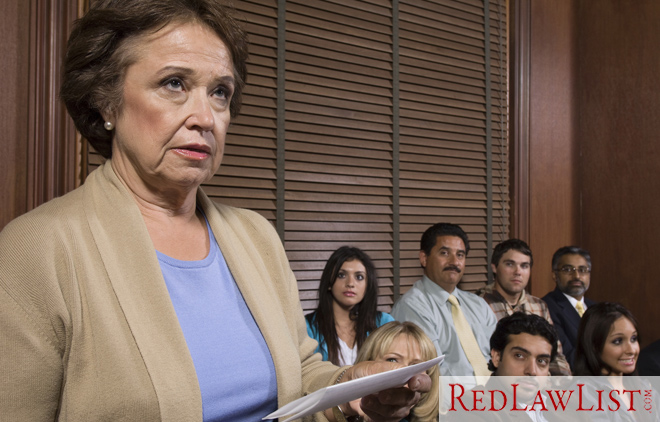
The right to a jury trial is 1 of the core tenets of the American legal system—the right of the accused to be judged by a jury of their peers. Yet the jury process is not without its flaws; those in the legal and political communities are regularly searching for ways to make it better.
At the top of problems with the jury system is a very simple one and it goes to human nature itself—can people really be completely unbiased and judge a case solely on the merits?
The selection process—known officially as “voir dire”—is designed to create an impartial jury. Potential jurors are asked if the fact a witness was a police officer would make them more or less likely to believe their testimony. Similar questions are asked regarding a defendant’s criminal history or how a juror might react to a defendant invoking their Fifth Amendment right to not take the witness stand.
In theory, these questions—and subsequent questions asked by attorneys for both sides—should allow the process to exclude those who are biased toward 1 side and seat those who will judge strictly on the merits.
However, considerable social science research—as well as plain old human experience—tells us that eliminating every single bias from one’s thinking might not even be possible. This in itself is a problem with the jury process. And it leads to a bigger one.
If human beings have subtle biases that will affect how they act on a jury, then there would be considerable advantage if 1 side was able to effectively identify in advance what those biases might be and how to either eliminate those jurors or manipulate their biases at trial. Hence, the role of the jury consultant.
Jury consulting is a relatively new phenomenon where an expert is called to assist 1 side of the case in the selection process. Jury consulting is now roughly a $500 million annual industry. There are approximately 600 firms devoted to the practice.
Jury consultants even have their own TV show, the popular CBS program Bull, where Michael Weatherly portrays the fictitious Dr. Jason Bull, whose extraordinary insights and expensive technology enable him to maneuver a jury toward the desired verdict.
In Bull, the jury manipulation is always done on behalf of a noble cause. The real-world effects of jury consulting aren’t quite as just. They are expensive and the result is that this is 1 more area where wealthy defendants now enjoy an advantage over those with fewer resources.
So what’s the solution? The reality is that, for all its flaws, the jury system is still likely the fairest process that we can come up with. The only alternative would be to allow the judge sole discretion over guilt and innocence. Judges are no less human and no less filled with subtle biases than anyone else.
Moreover, a study has shown that in the instances where the judge and jury disagreed on the proper outcome (about one-fifth of all cases), the jury was more likely to acquit. The American legal system is founded on the basis of making certain no innocent person is convicted, even at the expense of letting the guilty go free. The evidence suggests that, for all the flaws associated with human nature, the jury system is serving that purpose.


